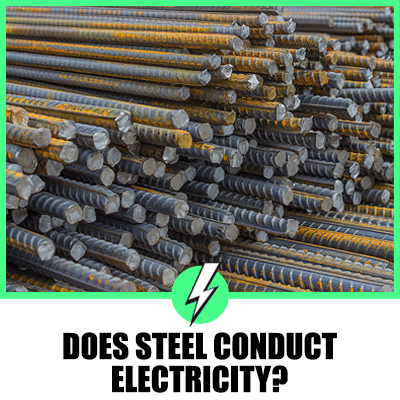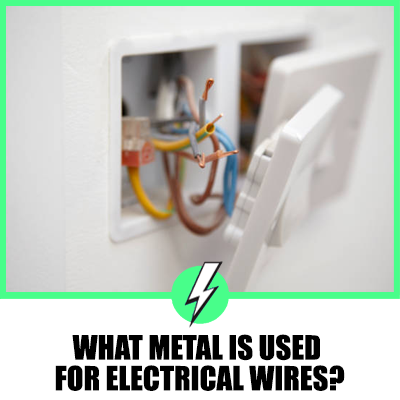Does Steel Conduct Electricity? A Comprehensive Analysis
Steel, an alloy primarily composed of iron and carbon, is a material renowned for its strength and durability.
It is used extensively in construction, manufacturing, and numerous other industries.
But when it comes to electrical conductivity, does steel make the grade?
Let’s delve into this topic and explore the electrical properties of steel.

Contents
Why is Steel a Bad Conductor of Electricity?
Steel, despite being a metal, is not a particularly good conductor of electricity.
This is primarily due to its composition.
Steel is an alloy, meaning it is a mixture of different elements.
The primary elements in steel are iron and carbon, but it can also contain other elements like manganese, phosphorus, and sulfur.
These additional elements can affect the electrical conductivity of the steel, often reducing it.
The electrical conductivity of a material is determined by how easily electrons can move through it.
In metals like copper and silver, the outermost electrons of the atoms are loosely bound, which allows them to move freely and carry electrical charge.
However, in steel, the additional elements can disrupt this free movement of electrons, making it a poorer conductor.
Is Steel an Insulator or Conductor?
While steel is not a particularly good conductor, it is not an insulator either.
An insulator is a material that does not conduct electricity at all, like rubber or glass.
Steel does conduct electricity, but not as well as more conductive metals like copper or silver.
Therefore, it is more accurate to say that steel is a poor conductor rather than an insulator.
Why Steel is a Good Conductor of Electricity?
Despite being a poor conductor compared to other metals, steel can still conduct electricity.
This is because it is a metal, and all metals have some degree of electrical conductivity.
The free electrons in the metal allow for the flow of electrical charge, which is what makes electrical conduction possible.
In certain applications, the fact that steel is a poorer conductor can actually be an advantage.
For example, in structures that need to be protected from lightning, steel can be used to safely direct the lightning to the ground without causing damage or starting a fire.
How Conductive is Steel Wire?
The conductivity of steel wire depends on the specific type of steel used.
Stainless steel, for example, is a poor conductor of electricity.
This is because it contains chromium, which forms a layer of chromium oxide on the surface of the steel.
This oxide layer disrupts the flow of electrons, reducing the wire’s conductivity.
Carbon steel, on the other hand, is a better conductor.
This is because it contains a higher proportion of iron, which is a relatively good conductor.
However, it is still not as good a conductor as copper or silver.
Insights from Online Discussions
Online discussions reveal a range of perspectives on the electrical conductivity of steel.
Some users highlight the fact that while steel is not a good conductor compared to other metals, it is not an insulator and can conduct electricity to some extent.
Others point out that the specific type of steel can significantly affect its conductivity.
For example, one user on Quora explains that stainless steel is a poor conductor due to the chromium oxide layer that forms on its surface.
This layer disrupts the free movement of electrons, reducing the steel’s conductivity.
Another user on Physics Stack Exchange points out that carbon steel, which contains a higher proportion of iron, is a better conductor than stainless steel.
A YouTube video by Wayne Breslyn demonstrates the conductivity of stainless steel using a simple home experiment.
He uses a 9V battery and a lightbulb to test the conductivity of various household items made of stainless steel.
The lightbulb lights up when the circuit is completed, showing that the stainless steel items do conduct electricity.
Conclusion
In conclusion, while steel is not a particularly good conductor of electricity, it is not an insulator either.
Its conductivity depends on the specific type of steel and the other elements it contains.
Despite its lower conductivity, steel is still used in a variety of applications due to its strength, durability, and other properties.





